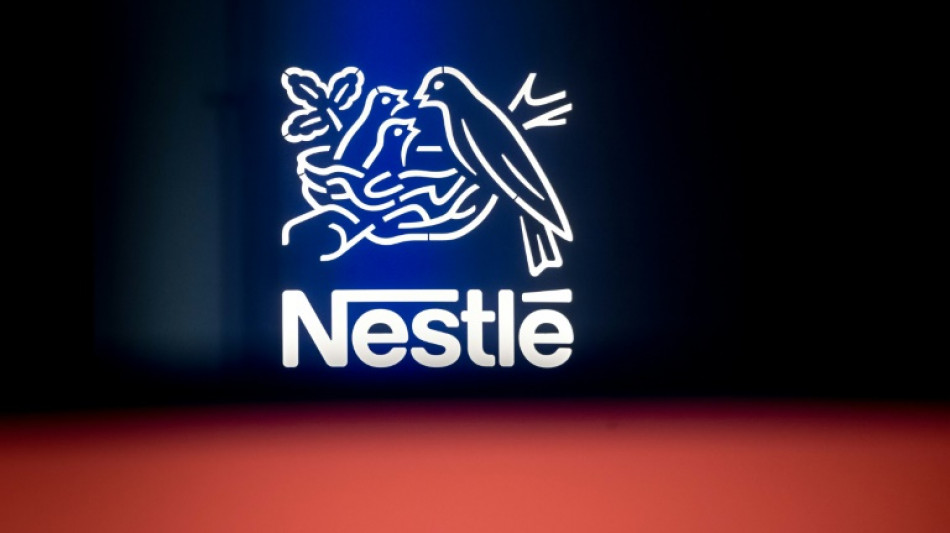

Nestle sales slump on weak North America demand for frozen food
Swiss food giant Nestle reported slimmer sales than expected in the first quarter on Thursday, weighed down by weak demand for frozen pizza and snacks in North America.
Shares in the group fell following the publication of its earnings, which come as Nestle has recently faced scrutiny over the quality of its Perrier water and sugar levels in baby food sold in poorer countries.
Total sales fell 5.9 percent to 22.1 billion francs ($24.2 billion) in the first three months of the year at the group, whose brands range from Purina pet food to Nespresso coffee, KitKat chocolate bars and Gerber baby products.
Analysts surveyed by Swiss news agency AWP had expected sales totalling 22.3 billion francs.
Its organic sales growth -- which excludes currency fluctuations and acquisitions -- reached 1.4 percent.
The group's real internal growth (RIG), which takes into account both sales volume and product value, slumped two percent -- deeper than the 0.7 percent fall expected by analysts.
The company said in a statement that sales performance was "impacted by soft consumer demand, particularly in North America, and the temporary supply constraints for vitamins, minerals and supplements."
Europe and emerging markets "more than offset" the decline in North America, it added.
"We had expected a slow start and see a strong rebound in RIG in the second quarter with reliable delivery for the remainder of the year," Nestle chief executive Mark Schneider said.
"A wide range of growth initiatives across the group are now starting to deliver," he said, noting that Nestle has "stepped up" commercial activity in North America, primarily in frozen food, which "lost ground" in the first quarter.
Nestle's RIG in North America was down 5.8 percent, said chief financial officer Anna Manz.
"Weakness in the US centered around frozen pizza and snacks, where we saw a combination of soft consumer demand, intense price competition and a reduction in retailer inventories in the quarter," Manz said.
- Water concerns -
Nestle confirmed its annual forecast, aiming for organic growth of around four percent.
Shares in the group fell 2.8 percent on the Swiss stock exchange in afternoon deals.
"We will reach a turning point in the second quarter," Schneider said in a conference call.
"We are taking the right steps to accelerate growth and expect a much stronger performance starting from the second quarter," he added.
Nestle's first-quarter performance stands in contrast to those of rivals such as French group Danone, which reported rising sales volume last week.
British consumer goods giant Unilever reported an uptick in first-quarter sales on Thursday.
Nestle has also scrambled to ease any concerns over its Perrier brand after France's food safety watchdog recommended stricter monitoring of sites where Nestle extracts mineral water following the discovery of traces of "faecal" contamination.
The company has since said it has stepped up monitoring of the sites, and Schneider reiterated on Thursday that the group's water was safe to drink.
He said Nestle was "working diligently with regulators in several countries where we operate" to "continue to assure absolute food safety and full conformity with local mineral water standards".
Last week, campaigners from Swiss organisation Public Eye said an investigation found that two of Nestle's best-selling baby-food brands marketed in developing countries contain high levels of added sugar.
"The negative news flow in recent weeks ... is raising concerns among investors," said Jean-Philippe Bertschy, analyst at investment firm Vontobel.
Patrik Schwendimann, analyst at Zurcher Kantonalbank, said "investor sentiment towards Nestle in recent months has never been so poor for more than 25 years."
He added that Nestle shares could rise sharply "if the news flow improves" but "Nestle must be able to show clear improvements in the coming quarters."
R.Cornelis--JdB



